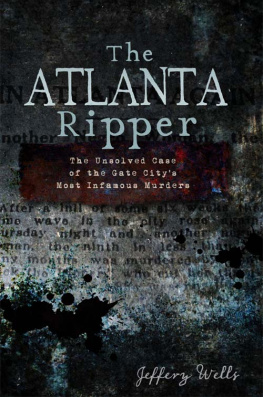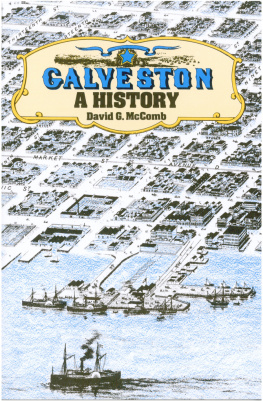Murder in McComb
Murder in
McComb
The Tina Andrews Case
Trent Brown

Louisiana State University Press
Baton Rouge
Published with the assistance of the V. Ray Cardozier Fund
Published by Louisiana State University Press
Copyright 2020 by Louisiana State University Press
All rights reserved
Manufactured in the United States of America
First printing
Designer: Michelle A. Neustrom
Typefaces: Whitman, text; Helvetica Now, display
Printer and binder: Sheridan Books, Inc.
Library of Congress Cataloging-in-Publication Data
Names: Brown, Trent, 1965 author.
Title: Murder in McComb : the Tina Andrews case / Trent Brown.
Description: Baton Rouge : Louisiana State University Press, [2020] | Includes index.
Identifiers: LCCN 2019041542 (print) | LCCN 2019041543 (ebook) | ISBN 978-0-8071-7280-3 (cloth) | ISBN 978-0-8071-7365-7 (pdf) | ISBN 978-0-8071-7364-0 (epub)
Subjects: LCSH: Andrews, Tina, 19571969. | MurderMississippiMcComb
Case studies. | Trials (Murder)MississippiMcCombCase studies. | Poor girlsSocial conditionsMississippiMcCombCase studies. | Police corruption
MississippiMcCombCase studies. | McComb (Miss.)History20th century.
Classification: LCC HV6534.M384 B76 2020 (print) | LCC HV6534.M384 (ebook) | DDC 364.152/3092dc23
LC record available at https://lccn.loc.gov/2019041542
LC ebook record available at https://lccn.loc.gov/2019041543
The paper in this book meets the guidelines for permanence and durability
of the Committee on Production Guidelines for Book Longevity of the Council
on Library Resources. 
For my wife, Jennifer
Contents
Introduction: The Road to the Oil Field
August 13, 1969, and the Killing of Tina Andrews
The Camellia City of America
Managing Life in McComb, Mississippi
The Weirdest Angles Ive Encountered
Investigating the Murder of Tina Andrews
Joe Pigott Receives a Call
Two Indictments and Initial Preparations for a Trial
The Summer of 1971
Developments on the Eve of the Trial
The State of Mississippi v. Richard McIntosh
Opening Salvos
A Girl of Ill Repute
Billie Jo Lambert Testifies
The State of Mississippi v. Richard McIntosh
The Defense Makes Its Case
The State of Mississippi v. Richard McIntosh
The 1972 Trial
After the Trials
The Fates of People and the City
Searching for Tina Andrews
Conversations and Rumors, but No Smoking Guns
Acknowledgments
More than any other project that I have undertaken, this book was built upon the generosity and help of others. It is my pleasure to recognize some of them here. First, thanks to Louisiana State University Press for publishing another one of my books. From the moment I took this manuscript to LSU Press,
Editor-in-Chief Rand Dotson offered enthusiasm, patience, and wise counsel. This time I surely tried Rands serenity on more than one occasion, but he never let me know it. LSU Press Director Alisa Plant runs an outstanding organization. As I have come to expect, everyone at the press provided expert work and care as this project moved toward publication. Thanks also to Jo Ann Kiser for her careful copyediting of the manuscript and to Denise Carlson for her excellent job of indexing this book.
Without the willingness of so many people to talk with me about the Tina Andrews story, there would have been no book. Special thanks to Carroll Case, who opened his home to me and spent many hours in conversation about our mutual interests in McComb. When Carroll said that I could call on him at any time, I knew that he meant it. So I did; he always answered. Justice James W. Kitchens and Brad Pigott offered vital information at critical stages. I owe them much more than a brief acknowledgment. Many thanks as well to Jackie Sue Andrews, Sue Williams, Clifton McGowan, Bennie Hayman, Dee Bates, Wayne Dowdy, Julian Prince, and Rita Watts, all of whom spoke to me about the Tina Andrews case or McCombs history. I appreciate their trust in me. This seems an appropriate place to say that the interpretations here are my responsibility alone. In Pike County, Mississippi, and elsewhere, a number of other people shared recollections about the subject of this book, helped me search for records, or otherwise provided significant assistance. They either intimated or insisted that they not be named here. I have respected their wishes, but nevertheless want to express my gratitude for all they did.
At the Missouri University of Science and Technology, Linda Sands was an enthusiastic listener whenever I wanted to tell her about the latest twists and turns in this story. Kayleigh Rodgers and Mackenzie Shields helped with newspaper microfilm, the transcription of interviews, and the conversion of my typewritten drafts (on an Olympia SM9, for those who are interested) into modern, editable form. The deans office of the College of Arts, Sciences, and Business provided funds for rental cars, meals, and other necessities of my research trips to Pike County; I appreciate the support of deans Stephen Roberts and Kate Drowne. Thanks to Kris Swenson for her comments on an early draft of the introduction.
A special thanks once again to Vance Poole, a great friend and companion for more than two decades now. In the profession, Steve Reich and Mitzi Walker Jones expressed interest and enthusiasm about this project. I wish to acknowledge as well the insightful, thorough reading of this manuscript by the anonymous reviewer for LSU Press. If I could thank that person by name, I surely would.
My family offered love and support, as they consistently do. For more than two years, my head and heart and sometimes the rest of me, too, were in Mississippi. My children, Jack and Ellie, have never known a time when their father was not thinking or writing about the South. I am proud of all that they are and all that they are becoming. Readers of this book will see my deep connections with Mississippi. My family there always offered a warm homecoming. Longer than I am able to remember, my mother has provided unconditional love and steadfast care. The older that I grow, the more I appreciate all that she has given me. Thanks and love to Aunt Jackie, too. When she says that she is always there for me, I know it is true. When I am in Mississippi, they always ask when I will return. In significant ways, I have never left.
To my wife, Jennifer, I owe the greatest debt. She listened for a long time to my obsession with this story, insisted that I go home to Mississippi to follow its trail, and most important, has tolerated all my many faults. One of these days, I hope that I can offer her more than a few words of thanks in a forum like this one for all the love that she has given me over the years. This books dedication reflects only a very little bit of what I feel for her. If my will can make it so, the best is yet to come.
Murder in McComb
INTRODUCTION
The Road to the Oil Field
August 13, 1969, and the Killing of Tina Andrews
Her name was Tina Marie Andrews. In the summer of 1969, she was twelve years old. On August 13, Tina awoke at her parents home on Oak Street in McComb, Mississippi, a small town in the southwestern part of the state. She was too young to remember that school.
Even if it had been a school day, though, she might not have walked to Otken, let alone been awake at an early hour. Nothing required Tina to go to school if she did not feel like it, or if her parents could not make her. Mississippi had repealed its compulsory attendance law years earlier, in the 1950s, in an effort to ward off integration of black and white schoolchildren. Consequently, in Pike County, where Tina lived, about one-third of the children dropped out before finishing high school. Tina did in fact miss a lot of school. While she enjoyed seeing her friends there and tried hard to make new ones, she was not a good student. Her classes did not hold her interest, or she struggled with them for other reasons, and she had made poor grades the last two years.
Next page












